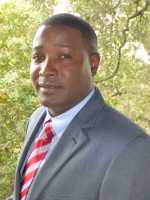30 Sep Young Black Men Who Feel Powerless Engage In More High Risk Behaviors
 MedicalResearch.com Interview with:
MedicalResearch.com Interview with:
Alvin Thomas, Ph.D.
Assistant Professor
Associate Director Center For Excellence in Diversity
Palo Alto University
Palo Alto, CA 94304
Walking Away Hurt, Walking Around Scared: A Cluster Analysis of Violence Exposure Among Young Black Males
Alvin Thomas and Elan C. Hope
Using a person-centered approach, we examine phenomenological variations in exposure to violence for Black males and describe risk and protective factors associated with patterns of violence exposure. We ran K-means iterative cluster analysis to determine patterns of violence exposure and conducted analysis of variance to test whether clusters differed. Data are from 287 Black males (M = 18.9) who participated in the Black Youth Project–Youth Culture Survey. Participants in the current study self-identified as Black or African American and male, and completed the political participation, health, and demographic portions of the survey questionnaire. We found four clusters of violence exposure that were related to demographic characteristics, maternal closeness, neighborhood condition, and sociopolitical inequity. Our findings highlight the heterogeneity of exposure to violence among young Black males and the individual and environmental risk and protective factors that are related to types and levels of exposure. This examination of quality of violence exposure in the context of available risks and protective factors may help clinicians and researchers improve their intervention efforts.
Medical Research: What is the background for this study?
Dr. Thomas: It is a fact that young Black males are more likely than any other demographic to be exposed to violence. However there is an incorrect assumption of homogeneity of the violence experienced by young Black males. These assumptions have deleterious effects for young Black males. Against the backdrop of high murder rates in cities like Chicago and increased deadly police interactions with this population across the US it is important to understand the phenomenology of violence exposure for young Black males.
Medical Research: What are the main findings?
Dr. Thomas: We found phenomenological differences in young Black males’ exposure to violence as victims and perpetrators. A large portion of the young men in this sample had a few experiences with violence and primarily as victims. Some youth attempted to fend of victimization by carrying weapons or engaging in fights to protect themselves.
Youth with the highest rate of victimization and perpetration also had poorest outcomes, and felt most disenfranchised. Many of these young people felt that their access to resources like education and justice was limited compared to other youth, and they felt powerless to effect change on the status quo. This feeling of powerlessness is related to high-risk behaviors. Young Black males who had been more exposed to violence were at highest risk of feeling disenfranchised, discriminated against, and disconnected from society.
Medical Research: What should clinicians and patients take away from your report?
Dr. Thomas: Clinicians need to be aware of the very real effect of the violence experiences of young Black males on their health, and assess the effect of these as part of an overall plan of treatment. Retention of minority clients in mental and physical health treatment is as critical an issue as service utilization within this same population. The disenfranchisement and disconnect from the status quo that young Black males feel owing partly to their life experiences is a critical consideration as clinicians seek to provide much needed services. Assessment of trauma exposure and effects for clients who have a history of violence exposure may be an important element in triage and treatment.
Patients should be aware that exposure to violent experiences could affect their inter and intra-personal relationships. They should discuss this psychosocial history with their mental and physical health service providers to determine whether their exposure to violence is contributing to their current health concerns.
Medical Research: What recommendations do you have for future research as a result of this study?
Dr. Thomas: Researchers should explore the effectiveness of youth programs that focus on young Black males. Such programs should help youth explore issues of social disconnect, disenfranchisement, and disillusionment, while also providing skills to empower youth to effect personal and systemic change. Policy research and inclusion efforts have to address the very real experiences of young Black males and make real changes to the way the representatives of the sociopolitical system interact with young Black males. We know the quality of many of the risks facing young Black males in America, the research on how to protect these young Black males must mushroom, and the findings applied.
Citation:
[wysija_form id=”5″]
MedicalResearch.com is not a forum for the exchange of personal medical information, advice or the promotion of self-destructive behavior (e.g., eating disorders, suicide). While you may freely discuss your troubles, you should not look to the Website for information or advice on such topics. Instead, we recommend that you talk in person with a trusted medical professional.
The information on MedicalResearch.com is provided for educational purposes only, and is in no way intended to diagnose, cure, or treat any medical or other condition. Always seek the advice of your physician or other qualified health and ask your doctor any questions you may have regarding a medical condition. In addition to all other limitations and disclaimers in this agreement, service provider and its third party providers disclaim any liability or loss in connection with the content provided on this website.
Alvin Thomas, Ph.D. (2015). Young Black Men Who Feel Powerless Engage In More High Risk Behaviors
Last Updated on October 6, 2015 by Marie Benz MD FAAD
